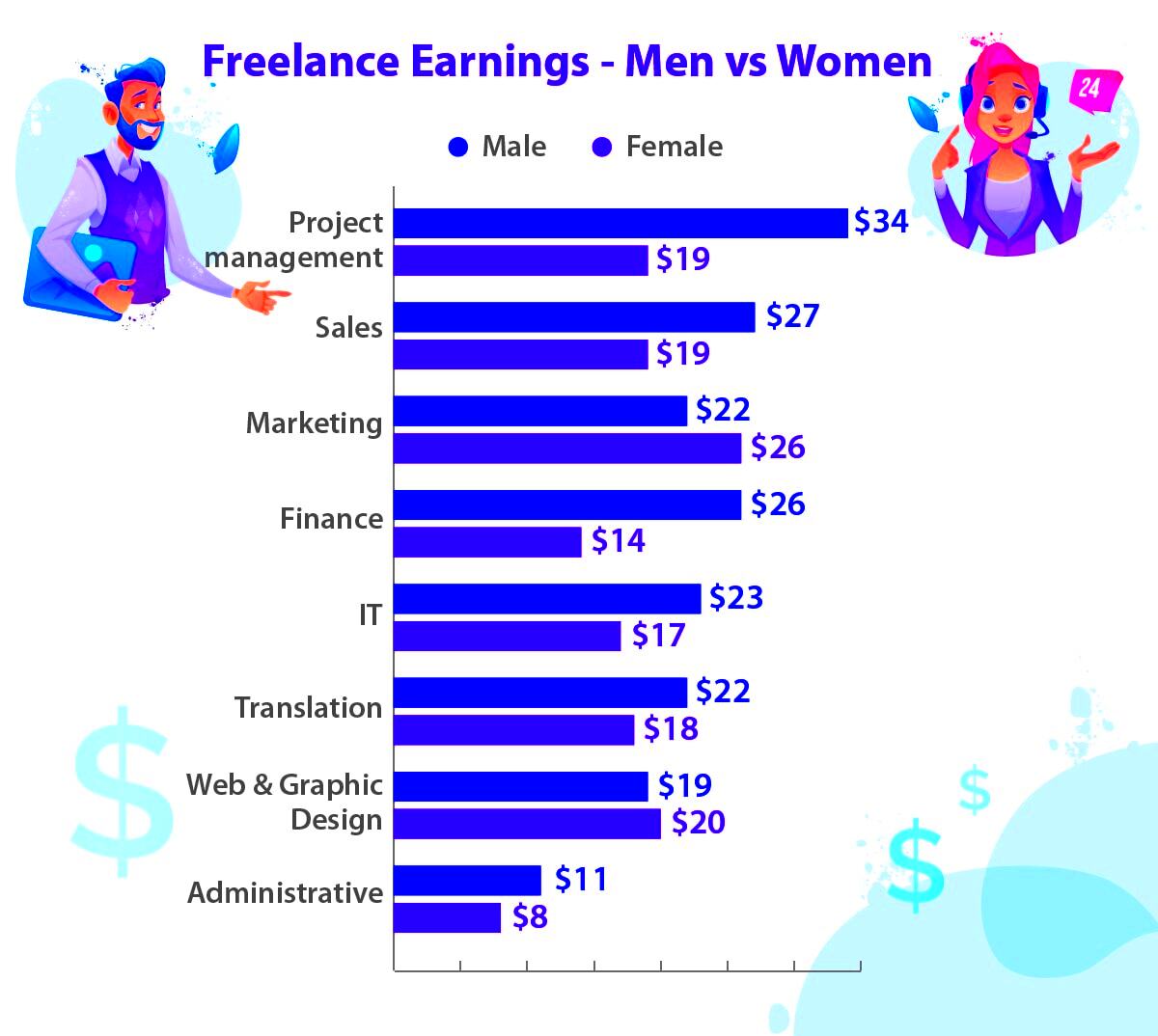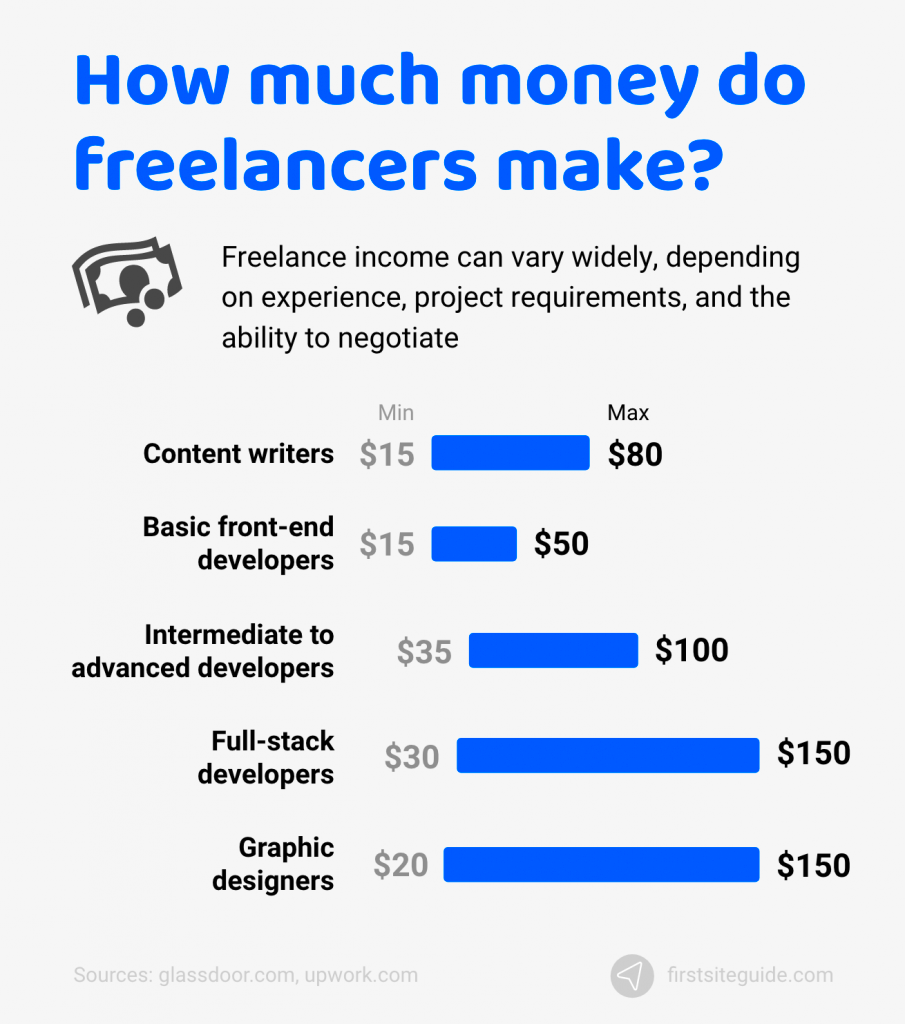Freelancing has become a popular career choice for many. It offers flexibility, independence, and the opportunity to earn a good income. However, understanding how freelance earnings work is essential for anyone considering this path. Unlike traditional jobs, freelancers have variable incomes, which can be influenced by several factors.
Freelancers get paid based on the services they offer, their experience, and the demand for their skills. This can result in significant income variations from month to month. Some months may be financially rewarding, while others may be slower. Knowing how to navigate these ups and downs is crucial for long-term success.
Factors That Influence Freelance Income

Several key factors play a role in determining how much a freelancer earns. Here are some of the most significant:
- Experience Level: More experienced freelancers can charge higher rates than those just starting out.
- Skill Set: Specialized skills often command higher fees. For example, a freelance graphic designer may earn more if they are proficient in a sought-after software.
- Market Demand: If there’s high demand for a specific service, freelancers can charge more.
- Location: Geographic location can impact earnings. Freelancers in major cities might charge higher rates than those in smaller towns.
- Client Relationships: Building strong relationships with clients can lead to repeat business and referrals.
Also Read This: How to Be a Buyer on Fiverr
How Different Niches Affect Earnings

Not all freelance niches are created equal when it comes to income potential. Here's a breakdown of how various fields can influence earnings:
| Niche | Average Hourly Rate |
|---|---|
| Web Development | $50 - $150 |
| Graphic Design | $30 - $100 |
| Content Writing | $20 - $100 |
| Digital Marketing | $40 - $120 |
| Virtual Assistance | $15 - $50 |
As seen in the table, niches like web development and digital marketing often offer higher rates compared to others. This is typically due to the technical expertise required and the demand for these services. By choosing a niche with higher earning potential and continually developing your skills, you can significantly boost your freelance income.
Also Read This: Can You Remake Your Fiverr? Unlocking New Opportunities and Strategies
Strategies for Increasing Your Income
As a freelancer, finding ways to boost your income can make a big difference in your overall financial health. With the right strategies, you can maximize your earnings while enjoying the flexibility that freelancing offers. Here are some effective methods to consider:
- Expand Your Skill Set: Continuous learning is key. Take online courses or attend workshops to learn new skills that are in demand.
- Network and Build Relationships: Attend industry events, join online forums, and connect with others in your field. Building strong relationships can lead to more clients and referrals.
- Offer Packages: Instead of charging by the hour, consider creating service packages. This can appeal to clients who prefer clear pricing and can lead to larger projects.
- Upsell Your Services: If you’re already working with a client, offer them additional services that complement your current work. This can increase your earnings without requiring you to find new clients.
- Seek Feedback and Improve: Regularly ask clients for feedback and use it to improve your services. Happy clients are more likely to recommend you and hire you for future projects.
Also Read This: How to Send a Request for Milestone on Fiverr
Setting Your Rates as a Freelancer
One of the most crucial aspects of freelancing is determining your rates. Setting the right price for your services can impact your income and how clients perceive your work. Here are some tips for setting your rates:
- Research Industry Standards: Look into what others in your niche are charging. Websites like Upwork or Fiverr can provide insight into typical rates.
- Consider Your Experience: If you're new to freelancing, you might start at a lower rate to attract clients. As you gain experience and build a portfolio, gradually increase your rates.
- Evaluate Your Costs: Make sure to account for business expenses when setting your rates. You need to ensure that your income covers costs like software, taxes, and insurance.
- Use Hourly vs. Project-Based Pricing: Decide whether to charge by the hour or per project. Each method has its benefits, so choose what works best for you and your clients.
Also Read This: Does Fiverr Have a Phone Number? Everything You Need to Know
Common Expenses Freelancers Face
As a freelancer, managing your finances includes being aware of the various expenses you’ll encounter. Understanding these costs can help you budget effectively and set your rates accordingly. Here are some common expenses to consider:
| Expense | Description |
|---|---|
| Software and Tools | Subscriptions for design software, project management tools, or communication platforms. |
| Marketing | Costs associated with advertising your services, such as website hosting, business cards, or online ads. |
| Taxes | Set aside a portion of your income for taxes, as freelancers must pay both income tax and self-employment tax. |
| Health Insurance | Freelancers typically need to pay for their own health insurance, which can be a significant expense. |
| Office Supplies | Items like a computer, printer, and office furniture can add up over time. |
By keeping track of these expenses, you can better understand your overall financial picture. This awareness helps you set appropriate rates and ensures you are not caught off guard by unexpected costs.
Also Read This: Can We Login to Fiverr Account on Multiple Devices?
Benefits of Freelancing Beyond Earnings
Freelancing is often viewed primarily through the lens of income, but there are numerous other benefits that come with this career choice. While financial gain is important, many freelancers find that the lifestyle and opportunities freelancing offers can be just as rewarding. Let’s explore some of these advantages.
- Flexibility in Work Hours: One of the biggest perks is the ability to set your own schedule. Whether you are a morning person or prefer working late at night, you can choose what works best for you.
- Variety of Projects: Freelancers often get to work on diverse projects across different industries. This variety can keep work interesting and help develop new skills.
- Location Independence: Many freelancers can work from anywhere, whether it's from home, a coffee shop, or while traveling. This flexibility allows for a better work-life balance.
- Control Over Clients: Freelancers have the power to choose who they work with. This means you can focus on clients who align with your values and interests.
- Personal Growth: Running your own freelance business can enhance your problem-solving skills, boost your confidence, and increase your independence.
Also Read This: How to Use Search Tags on Fiverr
Frequently Asked Questions
Many people have questions when it comes to freelancing, especially if they are just starting. Here are some common questions and their answers:
- What skills do I need to be a successful freelancer? Basic skills in your chosen field are crucial, along with strong communication, time management, and marketing abilities.
- How do I find clients? Networking, utilizing freelance platforms, and maintaining an active online presence can help attract clients.
- Do I need to register my freelance business? Depending on your location, you may need to register your business and pay taxes. Check local regulations for specifics.
- How can I ensure consistent income? Diversifying your client base, setting up retainer agreements, and continuously improving your skills can help stabilize your income.
- What should I do if I have a slow month? Use slower periods to market yourself, improve your skills, or network with potential clients.
Conclusion
Freelancing offers more than just a paycheck; it provides opportunities for personal and professional growth. While it can come with challenges, the benefits of flexibility, variety, and independence often outweigh the downsides. By understanding how to navigate the freelance landscape—setting your rates wisely, managing expenses, and continuously seeking to improve—you can build a successful and fulfilling freelance career. If you’re considering freelancing, remember that it’s not just about the money; it’s about creating a lifestyle that works for you. Embrace the journey and enjoy the many rewards it brings!




